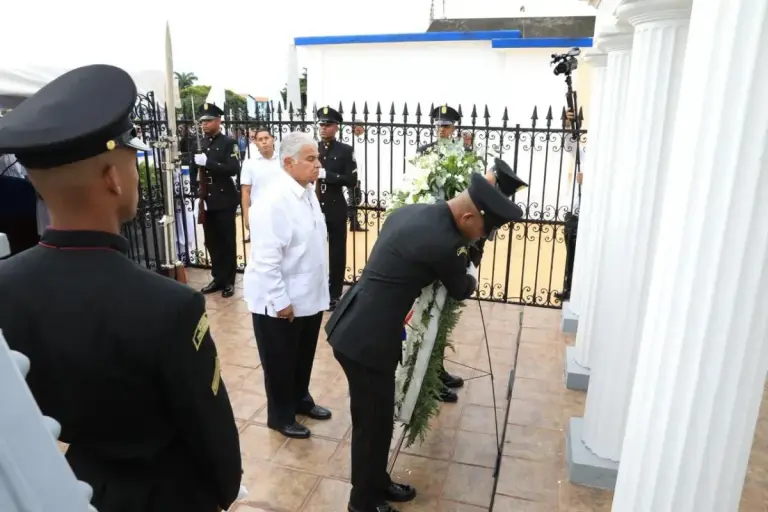Panamanian President José Raúl Mulino led the nation’s official Día de los Difuntos (Day of the Dead) ceremonies at the Amador Cemetery on Sunday, November 2. The president was joined by his cabinet ministers, municipal authorities, and provincial leaders for the solemn event honoring the country’s founding figures.
Mulino placed floral wreaths at two key memorial sites within the historic cemetery. He paid tribute at the mausoleum of Dr. Manuel Amador Guerrero, the nation’s first president, and at the open-air mausoleum dedicated to the Fallen Soldiers of Independence. The ceremony represents an annual tradition for Panama’s sitting president, connecting current leadership with the nation’s foundational history.
Ceremony Speakers Emphasize National Unity
Two designated orators delivered addresses during the commemorative event. President Mulino selected Adolfo Ahumada as the administration’s speaker, while the Municipal Council appointed Vladimir Berrío-Lemm. Both men explored themes of national unity and historical legacy in their remarks.
Ahumada specifically highlighted the remarkable political cooperation that made Panama’s separation from Colombia possible in 1903. He noted how former adversaries set aside their differences for a common national purpose.
“In my judgment, the lesson is that, despite differences and contradictions, liberals and conservatives united for that purpose,” Ahumada stated. [Translated from Spanish] “That must be recognized. They had fought so much against each other in the Guerra de los Mil días ( Thousand day War ) that had just passed and, nevertheless, when the idea of independence opened in their minds, everyone acted together.”
The speaker further characterized this historical unity as essential for Panama’s continued development. He urged contemporary citizens to find similar common ground despite political differences.
“That national unity, however minimal it may be, is the key for the country,” Ahumada continued. [Translated from Spanish] “Let us think about elements that lead us toward the path of national unity, as it was in 1903. From then on, every day we will be a better republic, greater, with more meaning beyond our small geographical size, and that search for a better future that, I am sure, will be achieved by the Panamanian population.”
Historical Context and Recognition
Ahumada also acknowledged the crucial role of Manuel Amador Guerrero in establishing the young republic. He described the first president as the foundational leader who set Panama on its current trajectory. The ceremony formally recognized this legacy through the presidential wreath-laying.
Berrío-Lemm provided additional historical context during his address. He reminded attendees that the successful 1903 independence movement built upon earlier efforts and sacrifices. The concept of national sovereignty had deeper roots in the Panamanian consciousness.
“Close to a thousand men stepped forward,” Berrío-Lemm noted, referring to the independence volunteers. [Translated from Spanish] “There were no bloody confrontations, but they were there willing to fight and put the country in order. They became known as Soldiers of Independence, in whose open-air mausoleum we are gathered.”
His remarks underscored the symbolic importance of the Amador Cemetery as a gathering point for national memory. The site physically connects modern Panama with its revolutionary generation.
Political and Civic Participation
The ceremony demonstrated broad governmental participation beyond the executive branch. Panama Province Governor Mayín Correa attended alongside Panama District Mayor Mayer Mizrachi. Municipal Council President Senén Mosquera and various council members also joined the presidential delegation.
This collective presence at a non-partisan national event signals the traditional importance of the Day of the Dead in Panama’s civic calendar. The observance transcends political affiliations to honor shared national history. President Mulino’s leadership of the ceremony represents one of his first major public engagements in this symbolic role as head of state.
Panama now moves forward from this day of remembrance with the historical lessons emphasized by its speakers. The call for national unity, drawn directly from the country’s origin story, resonates across contemporary political debates. Officials and citizens alike reflect on how the cooperation of 1903 might inform modern governance challenges.



